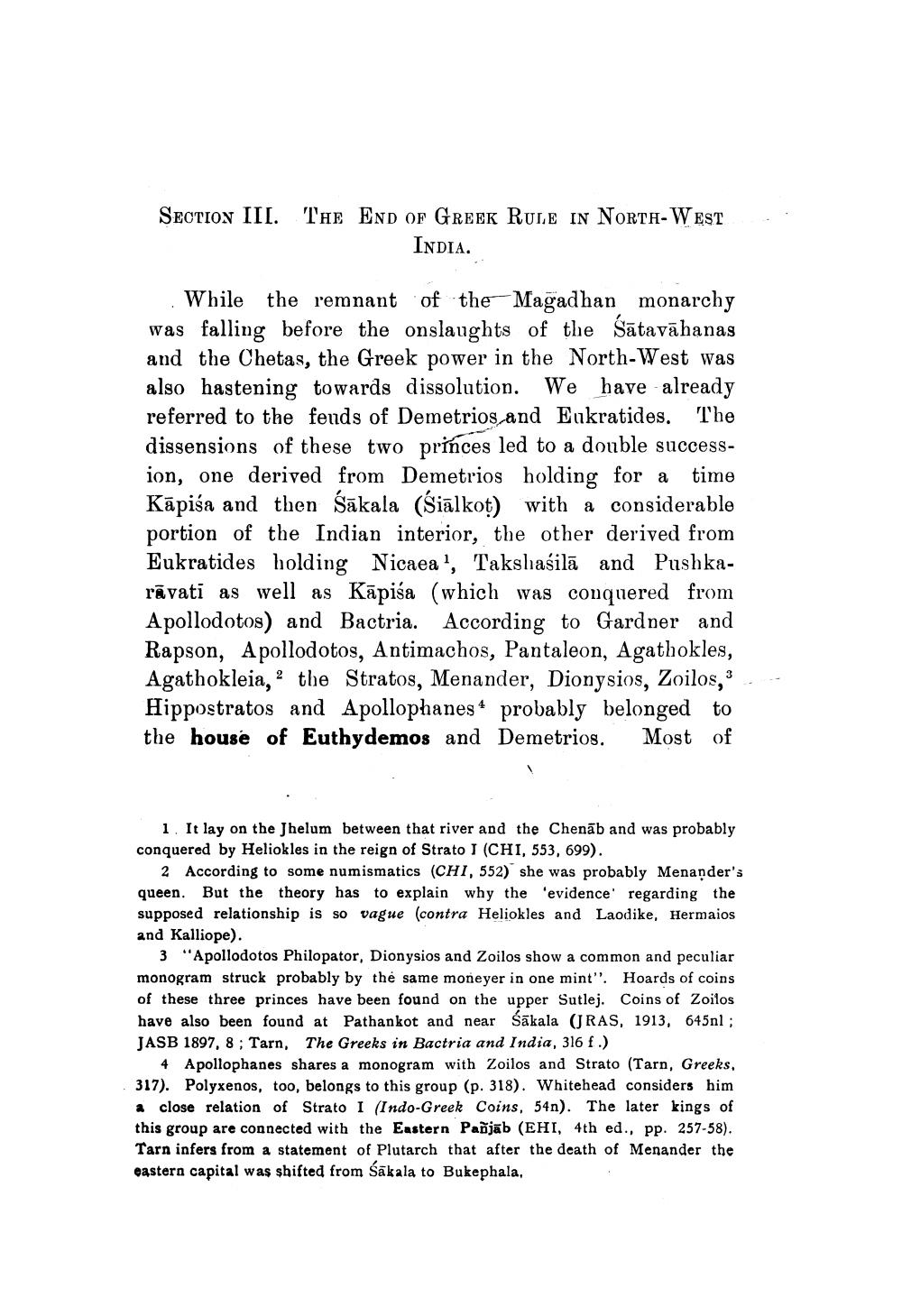________________
SECTION III. THE END OF GREEK RULE IN NORTH-WEST INDIA.
While the remnant of the Magadhan monarchy was falling before the onslaughts of the Satavahanas and the Chetas, the Greek power in the North-West was also hastening towards dissolution. We have already
referred to the feuds of Demetrios and Eukratides. The dissensions of these two princes led to a double succession, one derived from Demetrios holding for a time Kāpisa and then Sakala (Sialkot) with a considerable portion of the Indian interior, the other derived from Eukratides holding Nicaea', Takshaśila and Pushkaravati as well as Kapisa (which was conquered from Apollodotos) and Bactria. According to Gardner and Rapson, Apollodotos, Antimachos, Pantaleon, Agathokles, Agathokleia, the Stratos, Menander, Dionysios, Zoilos,3 Hippostratos and Apollophanes probably belonged to the house of Euthydemos and Demetrios. Most of
1. It lay on the Jhelum between that river and the Chenab and was probably conquered by Heliokles in the reign of Strato I (CHI, 553, 699).
2 According to some numismatics (CHI, 552) she was probably Menander's queen. But the theory has to explain why the 'evidence' regarding the supposed relationship is so vague (contra Heliokles and Laodike, Hermaios and Kalliope).
3 "Apollodotos Philopator, Dionysios and Zoilos show a common and peculiar monogram struck probably by the same moneyer in one mint". Hoards of coins Coins of Zoilos Sakala (JRAS, 1913, 645nl;
upper Sutlej.
of these three princes have been found on the have also been found at Pathankot and near JASB 1897, 8; Tarn, The Greeks in Bactria and India, 316 f.)
4 Apollophanes shares a monogram with Zoilos and Strato (Tarn, Greeks, 317). Polyxenos, too, belongs to this group (p. 318). Whitehead considers him a close relation of Strato I (Indo-Greek Coins, 54n). The later kings of this group are connected with the Eastern Panjab (EHI, 4th ed., pp. 257-58). Tarn infers from a statement of Plutarch that after the death of Menander the eastern capital was shifted from Sakala to Bukephala,




